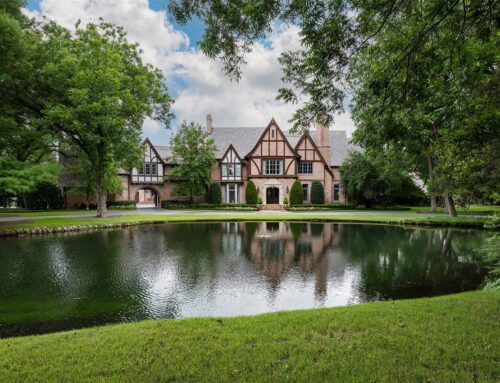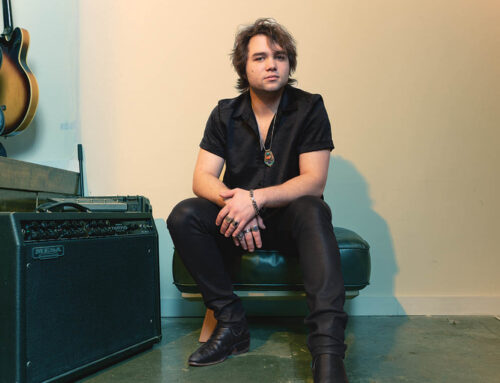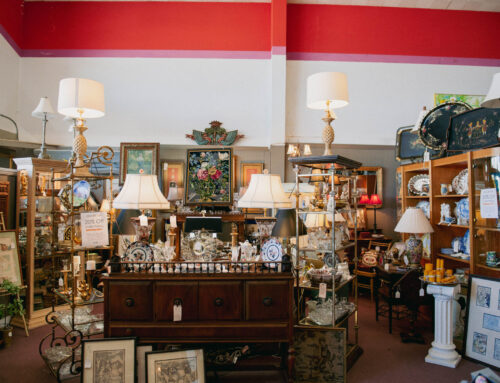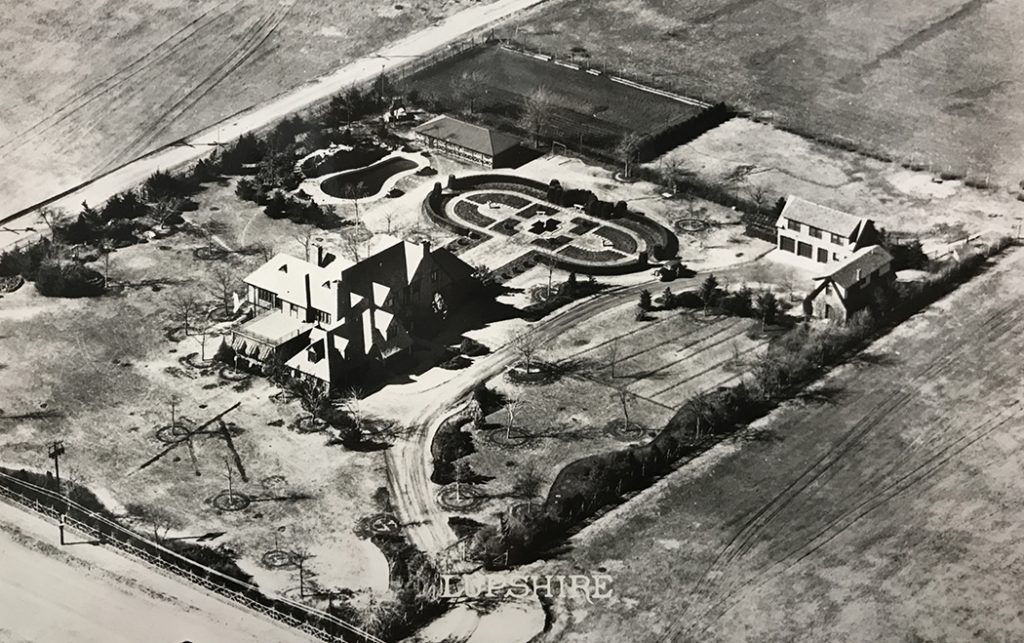
The Lupton estate at 9323 Preston Road was one of the first in Preston Hollow. (Photo courtesy of Eva Potter Morgan)
How a vendetta against one restaurant led Preston Hollow to ban dance halls, liquor, music and even loud talking
There were cocktail parties and picnics, but there wasn’t much drinking or dancing.
By today’s standards, celebrations in Preston Hollow were seemingly lackluster throughout the early 1940s. Residents hosted social events at their homes, where liquor rarely was served.
“There was never a place you’d go have a beer. That was unheard of,” says longtime neighbor Eva Potter Morgan, whose family first purchased property on Park Lane in 1926.
Preston Hollow didn’t incorporate until 1939. The 2-square-mile municipality consisted of dirt roads, rambling estates and a lone grocery store.
Surrounded by wooded thickets and fields, the town was bucolic, Morgan says.
Preston Hollow enforced strict rules to maintain its wholesome reputation during the short-lived stint as a suburb. Selling alcohol and dance halls were banned, along with loud speakers and loud talking, according to archived documents.
Preston Hollow could’ve inspired the 1984 film “Footloose.”
But the catalyst for all the rules was the town’s sole restaurant, not rebellious teens.
When businessman Sam Lobello opened Lobello’s at Northwest Highway and Preston Road, the neighbors were rattled by the drive-in’s neon signs, blaring megaphone music and a tower lit up so bright that it spewed green reflections into the intersection.
“Here we were surrounded by corn and cotton fields, and it was a ship coming out of the night,” Morgan says.
Homeowners thought the establishment was gaudy and its beer-drinking patrons too raucous, according to archived documents. Waste and debris from Lobello’s ran through a drain ditch and flooded nearby property. Customers yelled and honked their horns. Smoke from the kitchen polluted the air.
In response, the town held an election to outlaw the sale of alcohol and quell the restaurant-goers in 1940. Lobello begged neighbors to reconsider the proposal in a letter.
He would take their criticism seriously, he said, and even hired a watchman.
“In a desire to build up my patronage, I am sorry to admit that I overlooked certain important matters concerning the welfare and comfort of you, my neighbor,” he wrote in the letter, dated Feb. 23, 1940, that is featured in Morgan’s book “Preston Hollow.”
Lobello’s attempt to appease failed. Community members voted 97-49 to outlaw liquor sales, according to a February 1940 Dallas Morning News article.
“Preston Hollow voted dry to protect the community from damage resulting from undesirable places opening up along Preston Road,” prominent resident and developer Ira P. DeLoache told the newspaper. “I’m sure the vote was not against liquor as such, but to keep its sale from getting too close to our doors.”
Prohibiting the sale of alcohol didn’t calm the community. Five months later, residents petitioned the Town Council of Preston Hollow to curtail the lights, smells and sounds emitting from Lobello’s, too.
“We contend that a public nuisance exists … that our home lives are being disturbed … our peace and privacy destroyed … our property values jeopardized,” the petition reads.
The council approved yet another ordinance in hopes of halting recurring shenanigans. Businesses couldn’t use loud speakers to broadcast radio or music. “Spieling or loud talking” in public places was also banned. Punishment wasn’t taken lightly; fines ranged from $10-$100.
The ordinances didn’t keep residents from complaining about the sewer water leaking onto their property or its tacky appearance. Lobello’s never stopped serving customers, though. The restaurant ultimately outlasted the town. Preston Hollow was annexed into Dallas in 1945, and Lobello’s didn’t close until the mid-1960s.
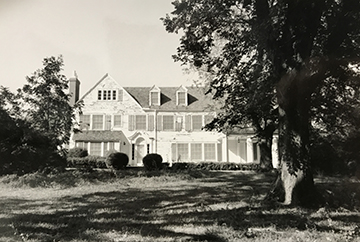
Developer Ira P. DeLoache is the original owner of this home at 8831 Preston Road. (Photo courtesy of Eva Potter Morgan)


